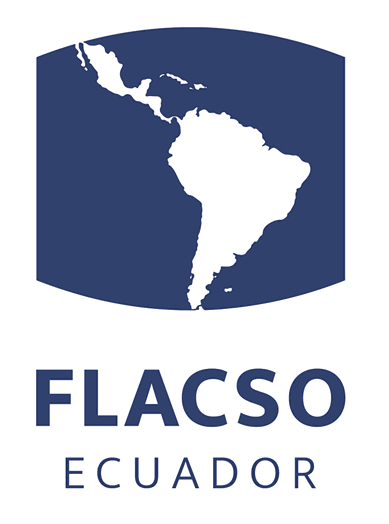Por favor, use este identificador para citar o enlazar este ítem:
http://hdl.handle.net/10469/23627Registro completo de metadatos
| Campo DC | Valor | Lengua/Idioma |
|---|---|---|
| dc.coverage.spatial | IN | es_ES |
| dc.creator | Doss, Cheryl | - |
| dc.creator | Deere, Carmen Diana | - |
| dc.creator | Abena D. Oduro, Suchitra J. Y. | - |
| dc.creator | Hillesland, Marya | - |
| dc.date | 2011 | - |
| dc.date.accessioned | 2025-07-14T20:50:59Z | - |
| dc.date.available | 2025-07-14T20:50:59Z | - |
| dc.identifier.citation | Doss, Cheryl, Carmen Diana Deere, Suchitra J. Y., Abena D. Oduro y Marya Hillesland. 2011. Lessons from the field: implementing individual asset surveys in Ecuador, Ghana, India and Uganda. Karnataka: Indian Institute of Management Bangalore. | es_ES |
| dc.identifier.uri | http://hdl.handle.net/10469/23627 | - |
| dc.description | This field guide outlines the key lessons learned from implementing household surveys that collected individual level asset ownership data in four countries. Three of the surveys, in Ecuador, Ghana, and Karnataka, India were implemented by the In Her Name: Measuring the Gender Asset Gap Project funded by the Dutch Government MDG3 fund. The fourth was implemented in Uganda by the Pathways to Secure Access to Assets: Land Tenure and Beyond project funded through the Assets and Market Access Collaborative Research Support Program of USAID. All four questionnaires were based on a template designed by three of the project leaders in a previous study.1 In each country, extensive background work included the study of the legal marital and inheritance regimes and qualitative field work involving focus groups and key informant interviews. The four main themes of the focus groups were the accumulation of assets over the individual life cycle; the importance of assets; the market for assets; and household decision-making over asset acquisition and use. The qualitative work was essential in adapting the generic template to specific contexts. One of the challenges of this overall Project has been to find ways to obtain data that is comparable across countries and is also appropriate and relevant in the specific contexts. | es_ES |
| dc.description.sponsorship | Indian Institute of Management Bangalore | es_ES |
| dc.description.tableofcontents | ÍNDICE | INTRODUCTION 1 | BACKGROUND ON THE SURVEYS 1 | SURVEY QUESTIONNAIRES 3 | Structure of the Questionnaires 3 | Household Asset Inventory and Individual Level Questionnaires 3 | Questions on Ownership, Valuation, and Acquisition of Assets 4 | Notion of Headship 5 | Survey Modules 6 | Household Roster 9 | Asset Modules 10 | Other Modules 14 | RECOMMENDATIONS ON THE MINIMUM QUESTIONS 15 | Minimum Questions for All Surveys 15 | Gender Gap Measures 16 | GENERAL IMPLEMENTATION ISSUES 16 | Training 16 | Implementation 18 | Gaining Access to Communities and Households 19 | Interviewing Protocols 19 | Data Cleaning and Analysis 20 | CONCLUSION 20 | NOTES 21 | APPENDIX 1. Description of Samples 22 | APPENDIX 2. Minimum Questions for Calculating Gender Asset and Wealth Gaps 24 | REFERENCES 26 | | es_ES |
| dc.format | 26 páginas | es_ES |
| dc.language | eng | es_ES |
| dc.publisher | Karnataka : Indian Institute of Management Bangalore | es_ES |
| dc.rights | openAccess | es_ES |
| dc.rights | Atribución-NoComercial-SinDerivadas 3.0 Ecuador | * |
| dc.rights.uri | http://creativecommons.org/licenses/by-nc-nd/3.0/ec/ | * |
| dc.subject | ACUMULACIÓN DE ACTIVOS | es_ES |
| dc.subject | ECUADOR | es_ES |
| dc.subject | GHANA | es_ES |
| dc.subject | INDIA | es_ES |
| dc.subject | UGANDA | es_ES |
| dc.subject | GÉNERO | es_ES |
| dc.subject | COMUNIDADES | es_ES |
| dc.subject | HOGARES | es_ES |
| dc.subject | PROPIEDAD | es_ES |
| dc.subject | VALORACIÓN | es_ES |
| dc.title | Lessons from the field: implementing individual asset surveys in Ecuador, Ghana, India and Uganda | es_ES |
| dc.type | book | es_ES |
| dc.identifier.slug | https://biblio.flacsoandes.edu.ec/libros/127071-opac | es_ES |
| dc.tipo.spa | Libro | es_ES |
| Aparece en las colecciones: | Colección General | |
Archivos en este ítem:
| Archivo | Descripción | Tamaño | Formato | |
|---|---|---|---|---|
| A-Cubierta.jpg | Libro - cubierta | 102,99 kB | JPEG | Visualizar/Abrir |
| LFLACSO-Doss.pdf | Libro - texto completo | 475,62 kB | Adobe PDF |  Visualizar/Abrir |
Este ítem está sujeto a una licencia Attribution NonComercial ShareAlike (CC BY-NC-SA 4.0)
Licencia Creative Commons



